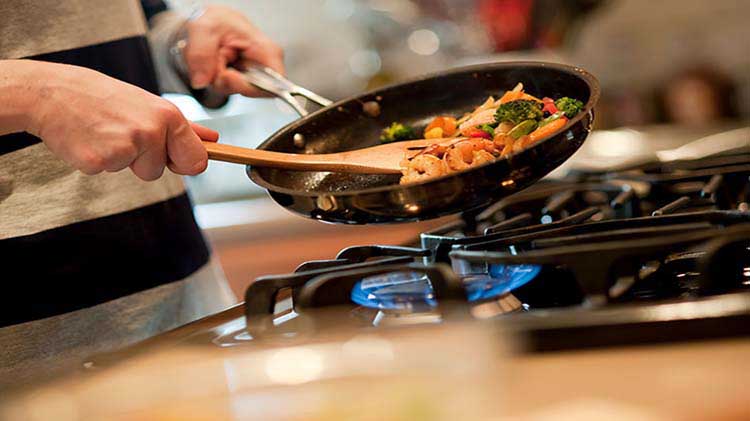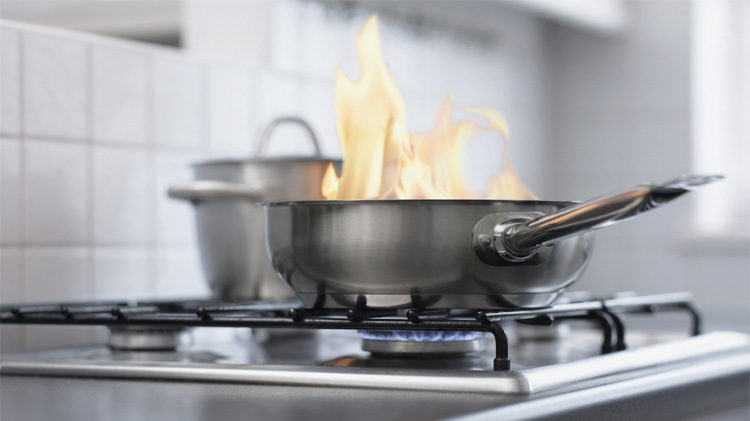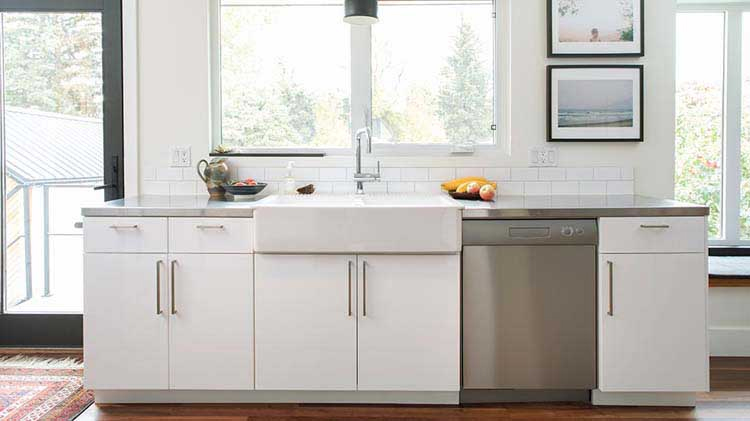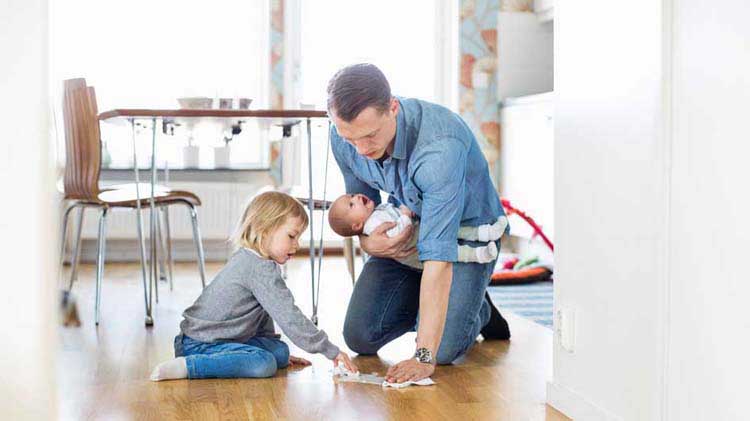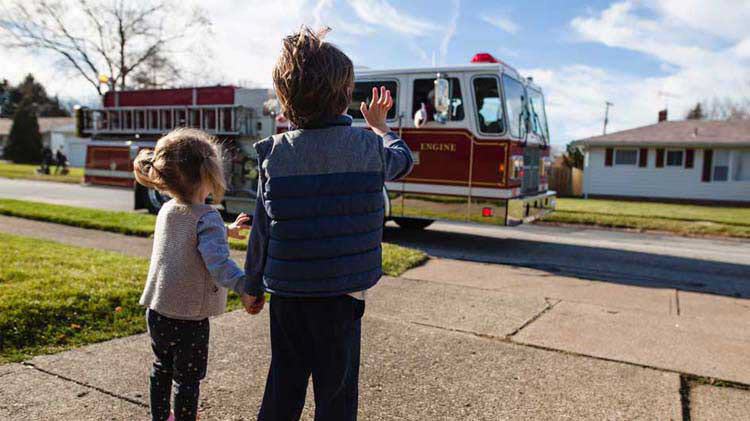Putting kitchen safety first
Protect yourself and your family from cuts, burns, slips and fires when cooking.
Many wonderful things get created and many good times have their start in your kitchen. However, anyone who does a lot of cooking has learned (maybe the hard way) that the kitchen can also be the source of some nasty injuries. Not only are there many sharp and hot (as well as slippery and shocking) things around, but cooking often involves juggling several tasks at once — sometimes while working around others.
Keeping your kitchen safe and your family free of cuts and burns isn't hard — most kitchen safety tips are simple and easy to follow. It's a matter of everyone putting safety first, even when things get hectic and rushed.
Cooking safety tips
Use knives safely
- Keep knives sharp. A sharp knife is much less likely than a dull one to slip or slide off a food item and catch your fingers while you're cutting.
- Always cut away. Aim the knife away from your body in case it slips or slides through whatever you're cutting. Also, curl your fingers inward while holding items so if the knife does slip, it nicks a knuckle or fingernail instead of your fingertip.
- Cut on a secure board. Make sure your cutting surface can't slide around, and never use your hand as a cutting board or cut food over the sink.
- Lick spoons, not knives. As tempting as it may be, never lick food off a knife. Even a butter knife can cut your tongue.
- Let the knife drop. Never try to catch a falling knife. Letting it hit the floor and washing it off is a lot easier than dealing with a nasty cut. Also, always pick a knife up by the handle, not the blade.
- Wash knives in plain view. Don't toss dirty knives into a sink full of soapy water — you or someone else could reach in and get cut.
Don't let the heat get to you
- Don't wear anything loose. Wear long sleeves to prevent grease burns, but don't let your sleeves, coats, scarves, or even your hair hang loose where they could catch on fire or hook a handle and tip over a hot pan. The same goes for dangling jewelry.
- Turn handles in. Turn pan handles in toward the stove so they don't get caught or bumped and spill the pan over as you or your children are moving around.
- Lift lids away from you. When taking the lid off a hot pot, tilt it so any hot steam or spraying liquids are aimed out, away from you. Be very careful around steam — not only can it burn you just as badly as a flame, but it's often invisible. Just because you don't see a white cloud of steam doesn't mean you can't still get burned.
- Never put hot liquids in the blender. Not only can your appliance get damaged, but the heat can also force the lid loose, and suddenly hot liquids are spraying all over you and the kitchen.
- Keep your oven mitts dry. A wet or damp hot pad or oven mitt becomes ineffective, transferring a lot more burning heat to your hand than a dry one.
- Mark hot lids and handles. Leave a hot pad on the lid or handle of pots and pans that just came off the stove so that no one accidentally gets burned.
Kitchen safety tips
Don't give fire a chance
- Check appliances. Keep appliances, stove tops and ovens clean and in working condition, free of accumulated food, dust, or grease. Follow all manufacturer's guidelines for kitchen equipment and appliances.
- Store flammables. Never leave or store rags, towels, or paper items near the stove or other heat-generating surfaces.
- Have fire extinguishers. Always have a fire extinguisher on hand, as well as a box of baking soda for grease or oil fires.
- Keep items attended. Don't ever walk out of the kitchen and leave heating pots and pans unattended.
- Secure and inspect cords. Make sure appliance cords aren't frayed or melted. Don't overload kitchen outlets with too many plugs, and keep electrical appliances away from water.
Clean up spills immediately
Floor spills can lead to slips and falls, especially on tile floors. Spills on countertops can create electrical hazards, make cutting less safe, and cause pots or pans to slide off and spill or scald.
Make sure everyone in your household is familiar with these safety guidelines, especially small children who are likely to be running in and out of the kitchen or wanting to help. That way all your great food gets to the table and everyone is injury-free to enjoy it.
